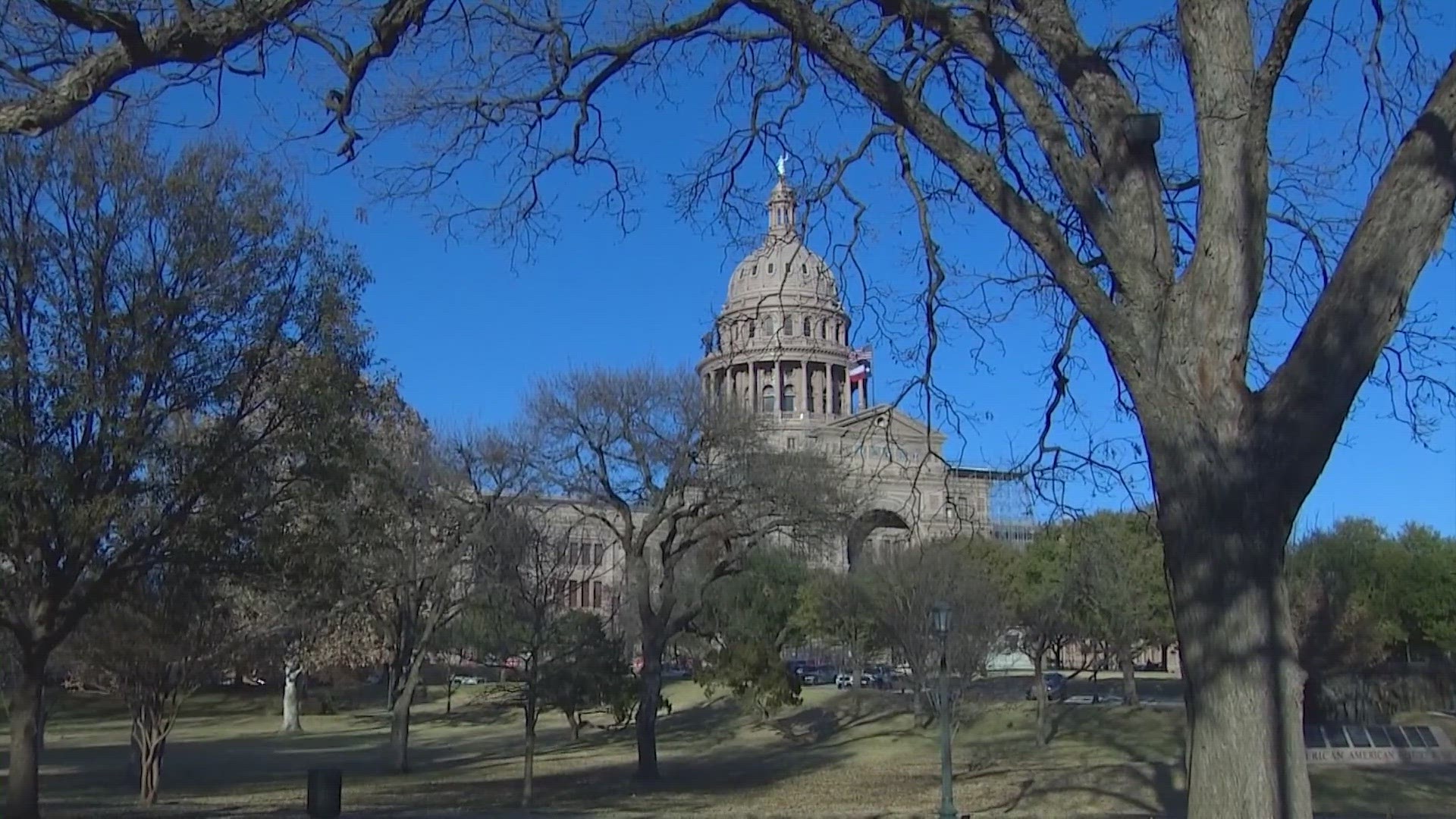TEXAS, USA — With the new year comes new laws. For HOA homeowners, that means a bit more transparency in how much you could be charged for violations. House Bill 614 goes into effect January 1 and experts said this creates a balance of power between HOAs and property owners.
The new law will require that homeowners association policies must include general categories of restrictive covenants for which the association may assess fines, a schedule of fines for each category of violation, and information on hearings.
"It also spells out a schedule for what fines are available for enforcement,” said Tray Bates, VP of government affairs with the Texas Realtors Association. “So you’re not surprised by maybe the first notice or the second notice or fine that happens."
Bates has been following House Bill 614's path into law. Starting January 1, 2024, the HOA fines associated with things like overgrown landscaping, parking violation, house alterations and more become clearer.
"Sometimes it’s a matter of lack of communication that happens in some HOAs,” he said. “And the intent of this bill is to make sure that that communication happens."
According to House Bill 614 , property owners’ associations will adopt a policy outlining the levying of fines, creating a list of fines for each category. Once that's done, they'll have to make that policy readily available on the internet, or deliver copies to property owners by hand, mail or email.
“Working on some HOA reform issues to make sure that property owners are protected that there’s a balance in power between the HOA and the property owners," Bates said.
According to Bates, Texas' booming population draws more attention to this, as more people are looking for homes. He said you should always look at the HOA rules, but says this new measure should give you access to rules even at the start of the purchasing process.
"I would really focus in on understanding what the HOA rules are before you sign on the dotted line so that you understand what you’re walking into,” he said.
More new Texas laws for 2024
Here is a breakdown of some of the new laws that go into effect on Jan. 1.
Bans DEI initiatives at public institutions of higher education
Texas Senate Bill 17, known as the anti-DEI law, bans diversity, equity and inclusion (DEI) offices, programs and training at publicly funded universities.
The initiative makes Texas the second state in the country to ban such higher education initiatives. Florida also banned DEI spending earlier this year.
According to the final text of the bill, universities can't create diversity offices or hire employees to conduct DEI work. They also can't require any DEI training as a condition for being hired or admitted. University practices must be "color-blind and sex neutral."
The bill, which goes into effect Jan. 1, 2024, also states that university leaders can't spend state money until they comply with the new law and that university governing boards must create policies to discipline employees who violate it.
Cost-of-living adjustment for Texas Teacher Retirement System
Texas Senate Bill 10 gives members of the Texas Teacher Retirement System a cost-of-living adjustment. Voters then approved the COLA adjustment as Proposition 9 on the Nov. 7 election.
Proposition 9 authorizes a one-time COLA between 2% and 6%, depending on when the teacher retired.
Retired teachers haven't received a COLA since 2013.
Texas University Fund
Texas House Bill 1595 renamed the National Research University Fund to the Texas University Fund. It also added Proposition 5 to the Nov. 7 ballot which voters approved.
Proposition 5 provided funding to certain institutions of higher education to achieve national prominence as major research universities and drive the state economy.
Those universities included:
- Texas State University
- Texas Tech University
- University of Houston
- University of North Texas
Issuance of specialty license plates for the 100th anniversary of 'Texas, Our Texas'
Texas House Bill 2323 allows the Texas Department of Public Safety to issue specialty license plates designed to commemorate the 100th anniversary of the writing of the state song, "Texas, Our Texas," that include the words "Texas, Our Texas" and the dates "1924-2024."
After the deduction of the department's administrative costs, the remainder of the fee for issuance of the license plates will be deposited in the general revenue fund.
Protecting Children from Electronic Cigarette Advertising Act
Texas House Bill 4758 makes it a criminal offense to market, advertise, sell, or cause to sell an e-cigarette product to minors. It would be a Class B misdemeanor.
This includes instances where the product’s container:
- Shows a cartoon-like fictional character that mimics a character primarily aimed at entertaining minors
- Imitates or mimics trademarks or trade dress of products that are or have been primarily marketed to minors
- Includes a symbol that is primarily used to market products to minors
- Includes an image of a celebrity
- Includes an image that resembles a food product, including candy or juice.
Creating a tax appraisal internet database
Texas House Bill 796 amends the tax code to require that each tax appraiser in each appraisal district to create and maintain an internet database regarding protest hearings done by the appraisal review board established by the district.

